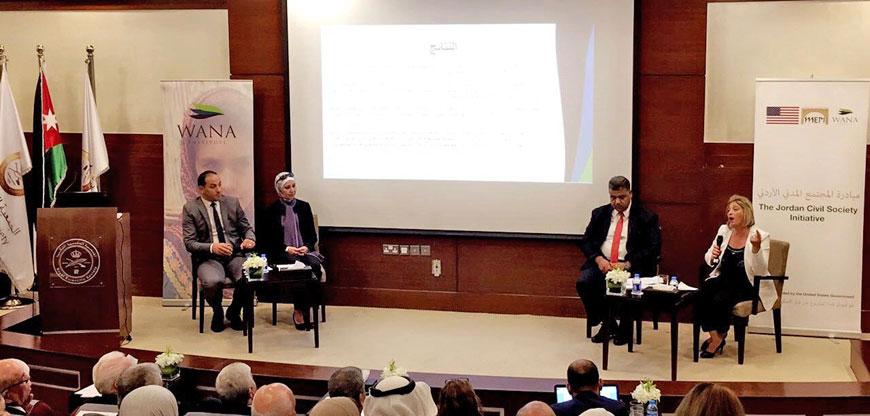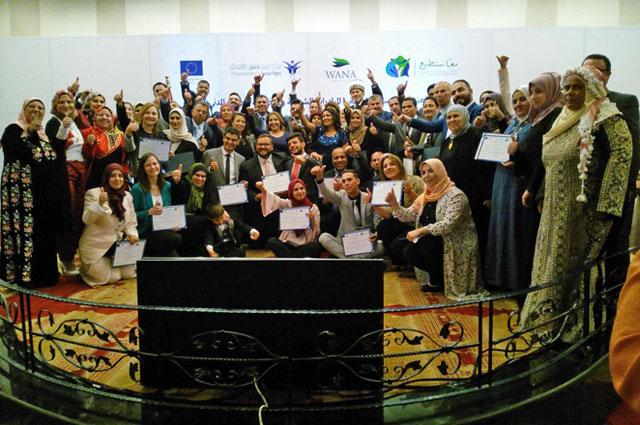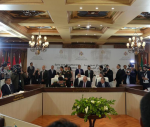You are here
‘Regulatory reform needed to strengthen civil society in Jordan’
By JT - Oct 03,2017 - Last updated at Oct 03,2017

The speakers present the Advocacy Strategy for Civil Society Organisations: Towards a Regulatory Reform to the audience in Amman, on Tuesday (Photo courtesy of WANA Institute)
AMMAN — The West Asia – North Africa (WANA) Institute on Tuesday launched its advocacy strategy for Civil Society Organisations (CSOs): Towards a Regulatory Reform.
Held under the patronage of HRH Prince El Hassan, the event was chaired by Mohammad Abu Hammour, Secretary General of the Arab Thought Forum, with the attendance of 50 government officials and representatives from CSOs, think tanks, international organisations, and academic institutions, a WANA statement said.
The advocacy strategy was collectively designed by 40 Jordanian community-based organisations (CBOs) under the guidance of the WANA Institute, based on the Institute’s needs assessment and roundtable discussion between CBOs/CSOs, think tanks and government officials.
The strategy recommended amending the 2008 Law of Societies — according to which a minimum of seven people can register as a society — to be made in accordance with international standards. It also called for the capacities of the ministries involved to be built to better monitor and evaluate the societies, the statement said.
The researchers recommended enhancing the coordination between the ministries of planning and international cooperation, finance, and social development to facilitate the work of the civil society in Jordan.
“We need to ease the formalities facing CSOs by creating an umbrella for the government departments dealing with them,” Abu Hammour said.
The study also stressed the need for a joint council between the state and CSOs, in addition to a genuine partnership with the private sector.
“There is a trust issue between civil society and the government, thus the government can’t be the one who determines the civil society priorities,” advocacy expert Mahmoud Hishmah explained.
The experts also highlighted that CBOs require training on the tools of campaigning, mobilisation and advocacy to be able to advocate for their demands and to design their projects as a direct response to the needs of the local communities, according to the statement.
A non-profit think tank in Amman, the WANA Institute conducts interdisciplinary research on sustainable development, social justice and human security with the aim of contributing to regional policies in an evidence-based manner, according to the statement.
Related Articles
AMMAN — President of the Energy and Minerals Regulatory Commission Council Farouq Hiyari on Saturday said that the commission had issued 2,1
AMMAN — Representatives from 80 Community Based Organisations (CBOs), youth initiatives and think tanks on Sunday gathered to celebrate the
AMMAN — The Information and Research Centre — King Hussein Foundation (IRCKHF), on Thursday launched the 2021 Civil Society Organisation (CS

















